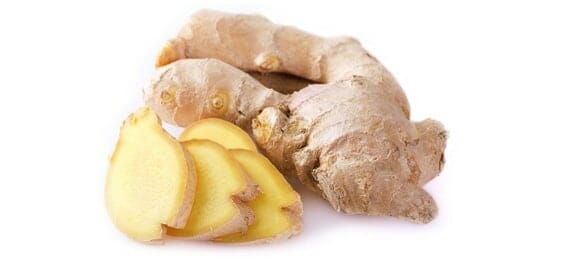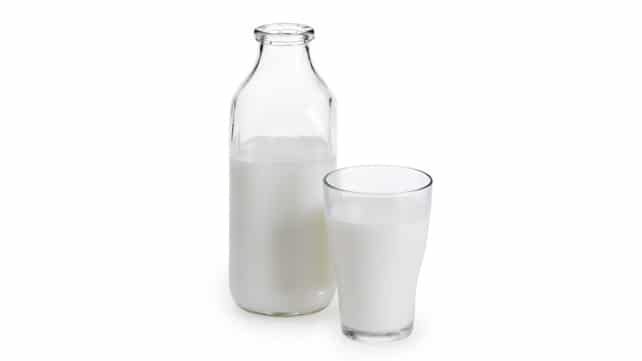Ginger is amongst the healthiest (and most delicious) spices in the world.
It is loaded with nutrients and bioactive substances that have effective advantages for your body and brain.
Here are 11 health benefits of ginger that are supported by clinical research study.
1. Ginger Contains Gingerol, a Substance With Powerful Medicinal Properties
Ginger is a flowering plant that emerged from China.
It comes from the Zingiberaceae family, and is related to turmeric, cardomon and galangal.
The rhizome (underground part of the stem) is the part frequently used as a spice. It is typically called ginger root, or simply ginger.
Ginger has an extremely long history of use in numerous types of traditional/alternative medication. It has actually been utilized to assist food digestion, decrease nausea and help battle the flu and typical cold.
Ginger can be utilized fresh, dried, powdered, or as an oil or juice, and is sometimes included to processed foods and cosmetics. It is an extremely typical ingredient in dishes.
The special scent and flavor of ginger come from its natural oils, the prominent of which is gingerol.
Gingerol is the primary bioactive substance in ginger, responsible for much of its medicinal efficacy. It has powerful anti-inflammatory and antioxidant effects.
Ginger is a popular spice which many people use to calm inflammation.
2. Ginger Can Treat Many Forms of Nausea, Especially Morning Sickness
Ginger appears to be highly reliable against nausea.
For example, it has a long history of usage as a sea sickness remedy, and there is some evidence that it rivals prescription medicines in effectiveness.
Ginger might likewise eliminate nausea and throwing up after surgery, and has been useful for cancer clients undergoing chemotherapy.
However it might be the most effective when it concerns pregnancy-related nausea, such as early morning illness.
According to an evaluation of 12 studies that included a total of 1,278 pregnant women, 1.1-1.5 grams of ginger can considerably reduce symptoms of queasiness.
Nevertheless, ginger had no effect on throwing up episodes in this research study.
Although ginger is considered safe, speak to your physician prior to taking big amounts if you are pregnant. Some believe that large quantities can raise the risk of miscarriage, however there are currently no studies to support this.
1-1.5 grams of ginger can assist avoiding different kinds of nausea. This applies to sea illness, chemotherapy-related queasiness, nausea after surgery and morning sickness.
3. Ginger May Reduce Muscle Pain and Soreness
Ginger has been revealed to be effective for exercise-induced muscle discomfort.
In one research study, consuming 2 grams of ginger daily, for 11 days, considerably minimized muscle discomfort in people performing elbow exercises.
Ginger does not have an immediate effect, but may work at reducing the everyday progression of muscle discomfort.
These effects are believed to be moderated by the anti-inflammatory properties.
Ginger appears to be effective at decreasing the everyday development of muscle pain, and may decrease exercise-induced muscle pain.
4. The Anti-Inflammatory Effects Can Help With Osteoarthritis
Osteoarthritis is a common health problem.
It includes degeneration of the joints in the body, leading to symptoms like joint discomfort and stiffness.
In a regulated trial of 247 people with osteoarthritis of the knee, those who took ginger extract had less pain and needed less pain medication.
Another research study found that a combination of ginger, mastic, cinnamon and sesame oil, can reduce discomfort and tightness in osteoarthritis patients when used topically.
There are some research studies revealing ginger to be reliable at lowering signs of osteoarthritis, which is a typical illness.
5. Ginger May Drastically Lower Blood Sugars and Improve Heart Disease Risk Factors
This location of research is relatively new, but ginger may have powerful anti-diabetic properties.
In a current 2015 research study of 41 individuals with type 2 diabetes, 2 grams of ginger powder daily lowered fasting blood sugar level by 12%.
It likewise significantly enhanced HbA1c (a marker for long-lasting blood sugar level levels), leading to a 10% decrease over a duration of 12 weeks.
There was likewise a 28% decrease in the ApoB/ApoA-I ratio, and a 23% decrease in markers for oxidized lipoproteins. These are both significant risk elements for heart disease.
Nevertheless, remember that this was simply one little study. The outcomes are extremely impressive, but they have to be confirmed in bigger research studies before any suggestions can be made.
Ginger has been revealed to lower blood sugar levels and improve various heart problem risk elements in patients with type 2 diabetes.
6. Ginger Can Help Treat Chronic Indigestion
Chronic indigestion (dyspepsia) is identified by reoccurring discomfort and pain in the upper part of the stomach.
It is believed that delayed emptying of the stomach is a significant cause of indigestion.
Surprisingly, ginger has actually been shown to speed up clearing of the stomach in people with this condition.
After consuming soup, ginger lowered the time it took for the stomach to empty from 16 to 12 minutes.
In a research study of 24 healthy individuals, 1.2 grams of ginger powder prior to a meal sped up emptying of the stomach by 50%.
Ginger appears to accelerate clearing of the stomach, which can be useful for people with indigestion and associated stomach discomfort.
7. Ginger Powder May Significantly Reduce Menstrual Pain
Menstrual pain (dysmenorrhea) refers to discomfort felt throughout a female’s menstrual cycle.
Among the traditional uses of ginger is for discomfort relief, including menstrual discomfort.
In one research study, 150 women were advised to take 1 gram of ginger powder each day, for the first 3 days of the menstrual period.
Ginger managed to lower pain as successfully as the drugs mefenamic acid and ibuprofen.
Ginger seems really effective versus menstrual pain when taken at the beginning of the menstrual period.
8. Ginger May Lower Cholesterol Levels
High levels of LDL lipoproteins (the “bad” cholesterol) are linked to an increased danger of heart problems.
The foods you eat can have a strong impact on LDL levels.
In a 45-day research study of 85 individuals with high cholesterol, 3 grams of ginger powder triggered significant decreases in most cholesterol markers.
This is supported by a research study in hypothyroid rats, where ginger extract lowered LDL cholesterol to a similar level as the cholesterol-lowering drug atorvastatin.
Both research studies also showed decreases in total cholesterol and blood triglycerides.
There is some proof, in both animals and people, that ginger can lead to significant decreases in LDL cholesterol and blood triglyceride levels.
9. Ginger Contains a Substance That May Help Prevent Cancer
Cancer is a really major disease that is characterized by unchecked development of unusual cells.
Ginger extract has actually been studied as an alternative treatment for a number of kinds of cancer.
The anti-cancer properties are credited to 6-gingerol, a substance that is found in large amounts in raw ginger.
In a study of 30 people, 2 grams of ginger extract daily substantially minimized pro-inflammatory signalling particles in the colon.
Nevertheless, a follow-up study in individuals at a high danger of colon cancer did not confirm these findings.
There is some, albeit limited, proof that ginger might be reliable against pancreatic cancer, breast cancer and ovarian cancer. More research is required.
Ginger consists of a substance called 6-gingerol, which might have protective effects against cancer. However, this has to be studied a lot more.
10. Ginger May Improve Brain Function and Protect Against Alzheimer’s Disease
Oxidative tension and persistent inflammation can accelerate the effects of aging.
They are thought to be amongst the crucial catalysts of Alzheimer’s illness and age-related cognitive decrease.
Some research studies in animals recommend that the antioxidants and bioactive substances in ginger can inhibit inflammatory reactions that take place in the brain.
There is also some evidence that ginger can boost brain function directly. In a research study of 60 middle-aged ladies, ginger extract was revealed to enhance response time and working memory.
There are likewise numerous studies in animals revealing that ginger can secure against age-related decline in brain function.
Studies recommend that ginger can secure against age-related damage to the brain. It can likewise enhance brain function in elderly ladies.
11. The Active Ingredient in Ginger Can Help Fight Infections
Gingerol, the bioactive substance in fresh ginger, can help lower the threat of infections.
In fact, ginger extract can inhibit the development of various kinds of bacteria.
It is extremely efficient versus the oral bacteria connected to inflammatory illness in the gums, such as gingivitis and periodontitis.
Fresh ginger may also be efficient versus the RSV virus, a common reason for respiratory infections.
Ginger is one of the few “superfoods” really worthwhile of that term. Youngevity now has a very good ginger supplement here.
 What is Prostatitis?
What is Prostatitis?


